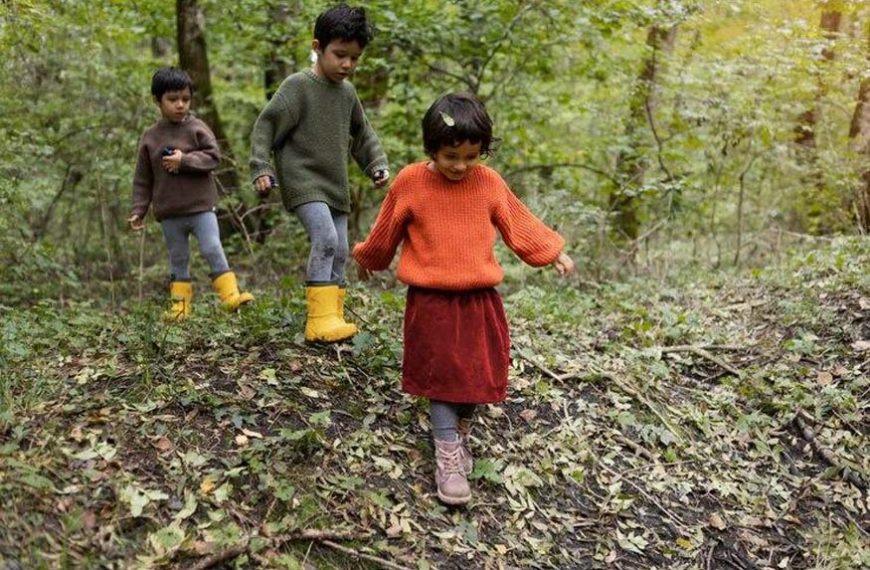A jungle safari with your baby promises a thrilling adventure, immersing your family in the rainforest’s magnificent sights and sounds. Observing exotic wildlife and plants up close creates magical shared memories of nature’s splendor. However, jungles also hide hazards for the unprepared, especially infants. Their delicate immune systems, curiosity, and inability to protect themselves demand vigilance against this realm’s complex risks. From disease-carrying insects to venomous spiders to aggressive predators, danger lurks behind wonder.
Proper prior planning and precautions though allow full enjoyment of these ecosystems’ glories, on baby’s terms. Picking child-friendly tours, gear tailored for safety/comfort and assessing all potential hazards facilitates appropriate defenses. Address feeding, supervision, hygiene and response preparedness to combat infections, bites, falls and climate threats through preventative and reactive measures. With cautious arrangements, you can relax and create priceless bonds with your baby, surrounded by the jungle’s vibrant beauty. Abundant preparations today enable a lifetime of memories exploring together. So embark excitedly on this adventure, armed not just with luggage but with diligent protection only parents can provide.
Health and Medical Precautions:
Consult with your pediatrician before departure to discuss vaccinations, medications, and any health risks specific to the region. Babies can be more vulnerable to illness in new environments. Make sure yours has the appropriate immunizations and bring any medications they regularly take. Also, pack a comprehensive first-aid kit designed specifically for infants. This should include any prescription meds, antibiotics, antihistamines, pain/fever relievers, ointments, and tools.
Be aware of mosquitos in the jungle that may carry diseases like malaria or dengue fever. Dress your baby in lightweight long sleeves/pants and use an infant-safe insect repellent or mosquito netting. Check for any cuts, scrapes, or unusual rashes after outdoor activities, and keep them clean/dry. The humidity also increases the risks of nappy rash, which zinc oxide creams can prevent. Stay well hydrated and seek medical treatment if any concerning symptoms develop.
Safari Logistics and Gear:
When registering for a guided safari tour, select one experienced in accommodating infants with appropriate lodging, transportation, and activities. A baby backpack carrier is extremely useful for jungle hikes, freeing your hands and keeping them protected. The right gear, like these specialized hiking child carriers, allows you to observe more wildlife while keeping your little one comfortable close by.
Determine suitable sleeping arrangements like a portable crib. Weatherproof shade shelters, mosquito netting, and rain covers should also be used during daily excursions. Pack familiar items like favorite toys, books, and blankets for naps. Soft infant ear protectors can buffer loud jungle sounds during nighttime or close wildlife encounters. Carefully research when choosing a tour package and gear to ensure safety, cleanliness, and function for your baby’s needs.
Feeding Considerations:
Breastfeeding is the easiest nutrition source while traveling. Stock up on formula/baby food if formula-fed, testing new brands at home first to avoid allergic reactions abroad. Bring more than enough, as access may be limited in remote areas. Powdered formula likely requires boiled water, so packing a portable bottle sterilizer and disinfectant solution is wise.
A lightweight, folding high chair can secure fussy eaters during meals. Utensils that attach to tables or chairs also work. As always, introduce new foods slowly and be alert for choking or allergic reactions. If your child has started solids, pack nutritious purees/snacks they already tolerate. Probiotic drops help maintain good gut bacteria levels, too. Remember to stay hydrated and seek shade whenever possible.
Safety Is Paramount:
Check current travel advisories and local weather forecasts to avoid unsafe jungle destinations or hazardous seasons. Ensure your planned activities, guides, accommodations, and transport meet safety standards for infants. Look for reviews referencing babies specifically. Arrange emergency contacts and know the closest medical facilities, though these may be primitive or far. Consider travel insurance covering air ambulance transport if necessary.
Baby slings or carriers add security in questionable terrain. Use insect repellent, protective clothing, sturdy shoes, and hats to minimize skin exposure. Strictly follow your guide’s safety directions regarding proximity to wildlife, plants, water, etc. Provide familiar items and consistent routines to reduce baby stress. Avoid directly handling animals and supervise interactions closely, stopping any aggression or distress signals. Keep immunizations, medicines, and clean drinking water accessible. Monitor babies vigilantly for discomfort from heat, allergies, overstimulation, etc. Stay conservative regarding jungle elements to prioritize their well-being.
Precautions Regarding Wildlife:
View wildlife only under the supervision of guides, staying quiet and at a non-threatening distance. Never approach animals directly, as they may attack if startled or bothered. Be alert for signs of aggression like raised fur/feathers, teeth-baring, snarls, tense muscles, or changes in activity, signaling unease. Give them abundant space and retreat slowly if these indications arise.
Certain mammals, reptiles, spiders, insects, and plants common in jungle habitats can be hazardous if touched or ingested. Teach older infants not to reach for animals and supervise exploratory play closely. Use covered prams, baby carriers, playpens, or hands-on monitoring for limiting wildlife interaction. Dress babies in shoes/socks and long sleeves where possible for further protection. Also, check play areas for dangerous plants/creatures and properly sanitize hands after contact.
Preparing for the Elements:
The jungle’s climate can be unpredictable or severe for babies unaccustomed to heat, humidity, and torrential downpours. Pack clothing layers, allowing adjustments to weather shifts. Lightweight, breathable fabrics that dry quickly aid cooling while quality rain gear blocks wind or storms. Secure hats shielding necks, sunglasses, and UV-protective swim clothing help safeguard babies outside for long periods.
Check forecasts pre-trip and daily to anticipate:
Temperature/precipitation changes. Monitor infants closely for signs of heat rash, dehydration, lethargy, or discomfort suggesting overheating. Keep babies well-hydrated and seek cooler conditions at any indications of heat stress. Guard against sunburn with protective shields, blankets, canopies, shade shelters, and limiting exposure during peak sun hours. The jungle’s muggy climate also heightens thirst and fluid requirements. Breastfeed on demand or offer bottle refills regularly. Bring plenty of clean water/beverages to prevent dehydration in babies with higher needs.
Adapt schedules, activities, and gear to weather extremes that could affect babies more severely. Jungle environments demand preparation for intense sun, heat waves, humid nights, and potential flooding. Ensure accommodations supply relief from the elements when required. With attentive parental oversight, safe hydration/nutrition, appropriate attire, and contingency provisions, babies remain comfortable amid changing conditions. Adjust sensibly to support their needs despite nature’s unpredictable whims.
Preparing Appropriately:
Visiting the majesty of unspoiled jungles with your baby can bond you to nature and produce magical memories. But preparation must take priority over adventure. Assess health considerations, travel logistics, necessary gear, feeding, safety issues, and wildlife risks thoroughly beforehand. Seek pediatric and experienced guide advice tailored specifically to your destination and infant age/needs. Prior planning allows you to anticipate challenges, stock provisions, and prevent issues. This lets your family relax and enjoy your jungle trip while keeping the baby’s well-being first. With vigilant precautions, attentive supervision, an open mindset, and reasonable expectations, savor each moment alongside your little explorer.
For more such interesting blogs, Visit EuroKids
















